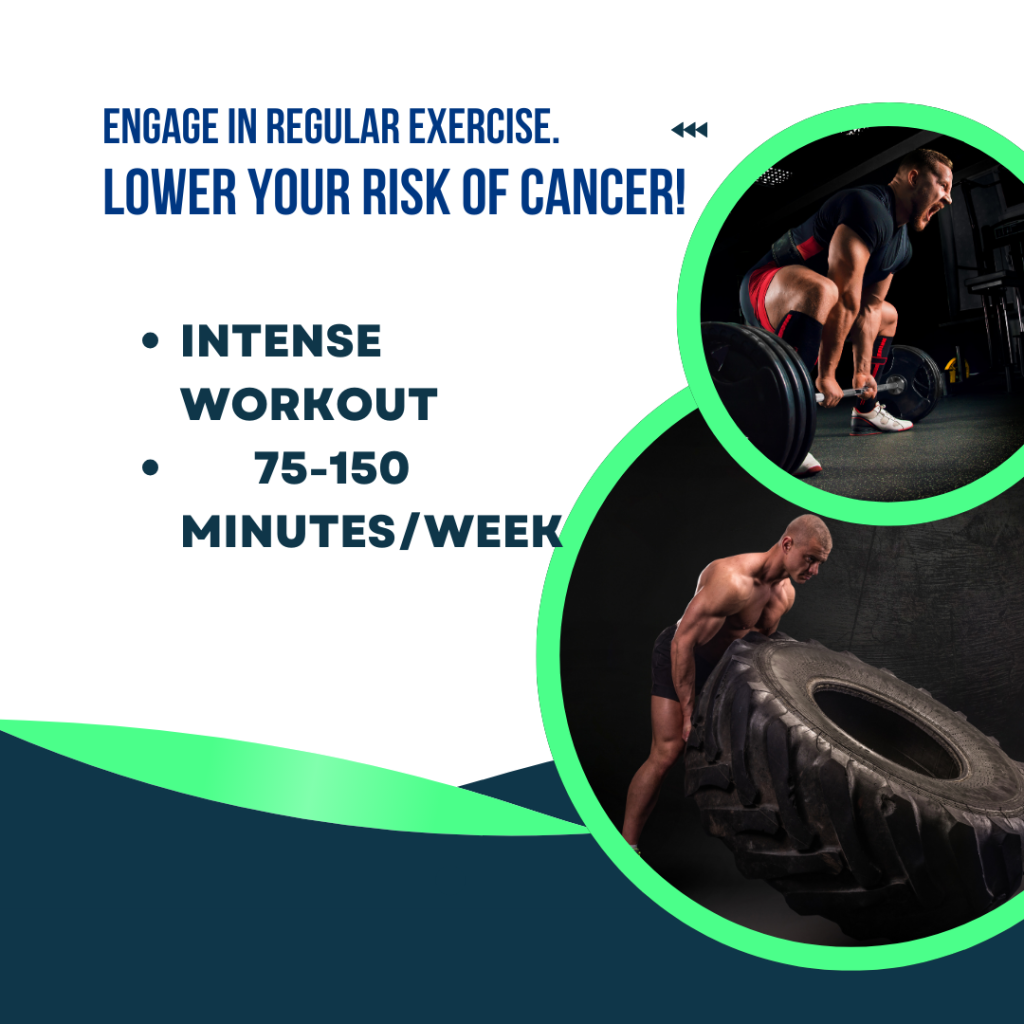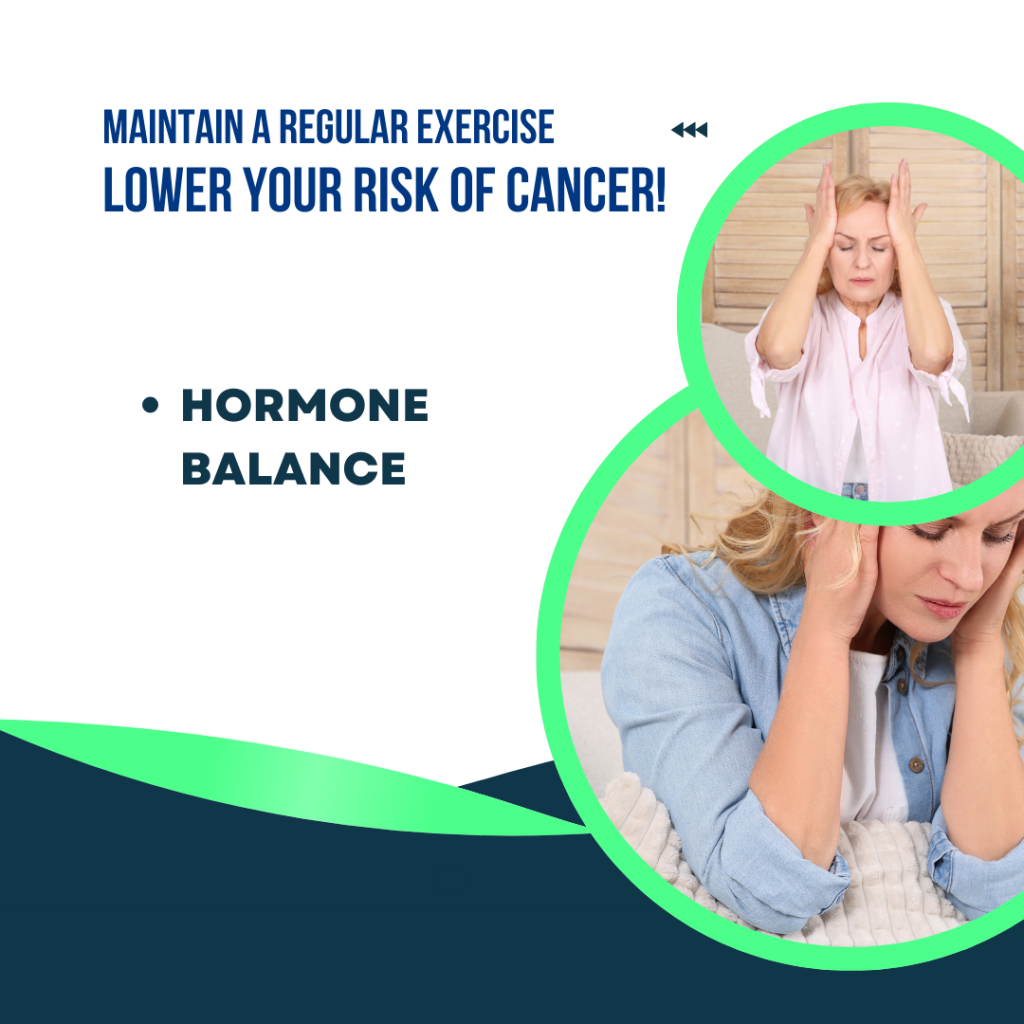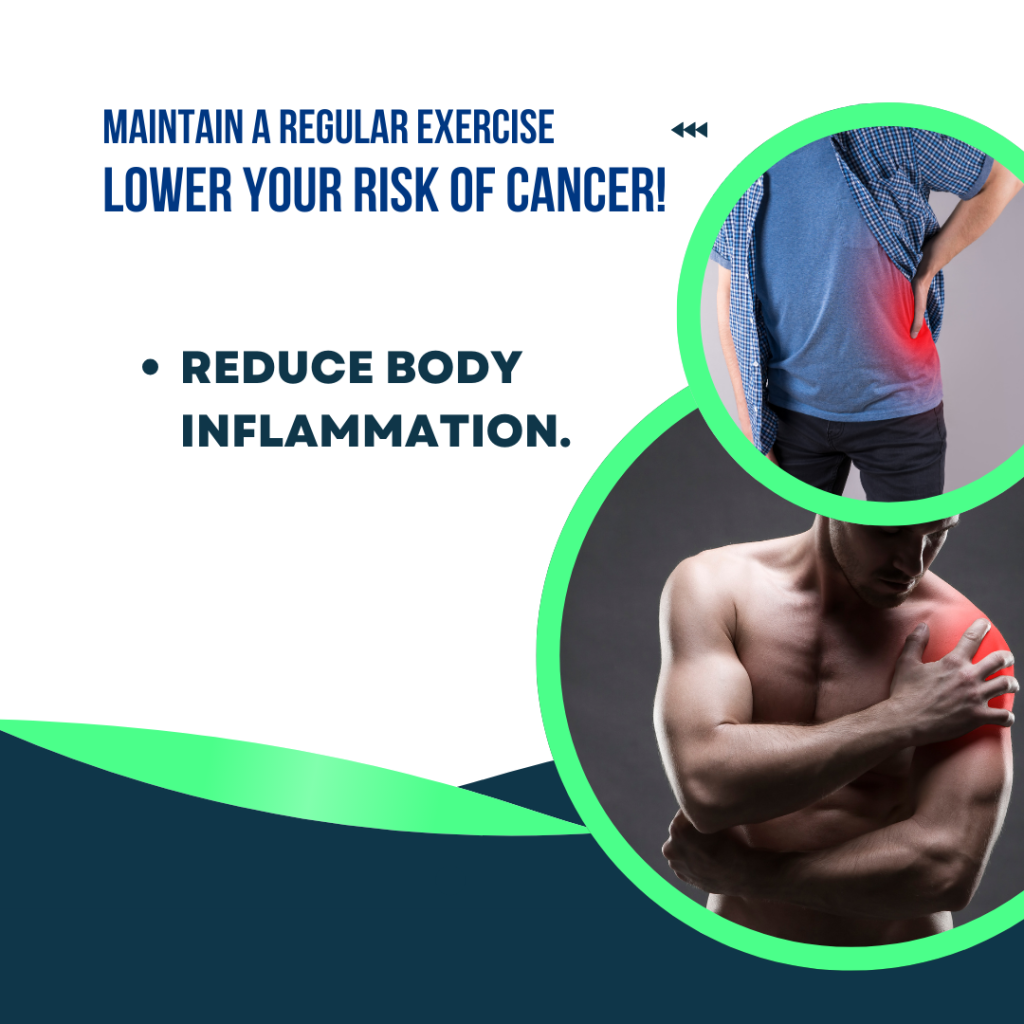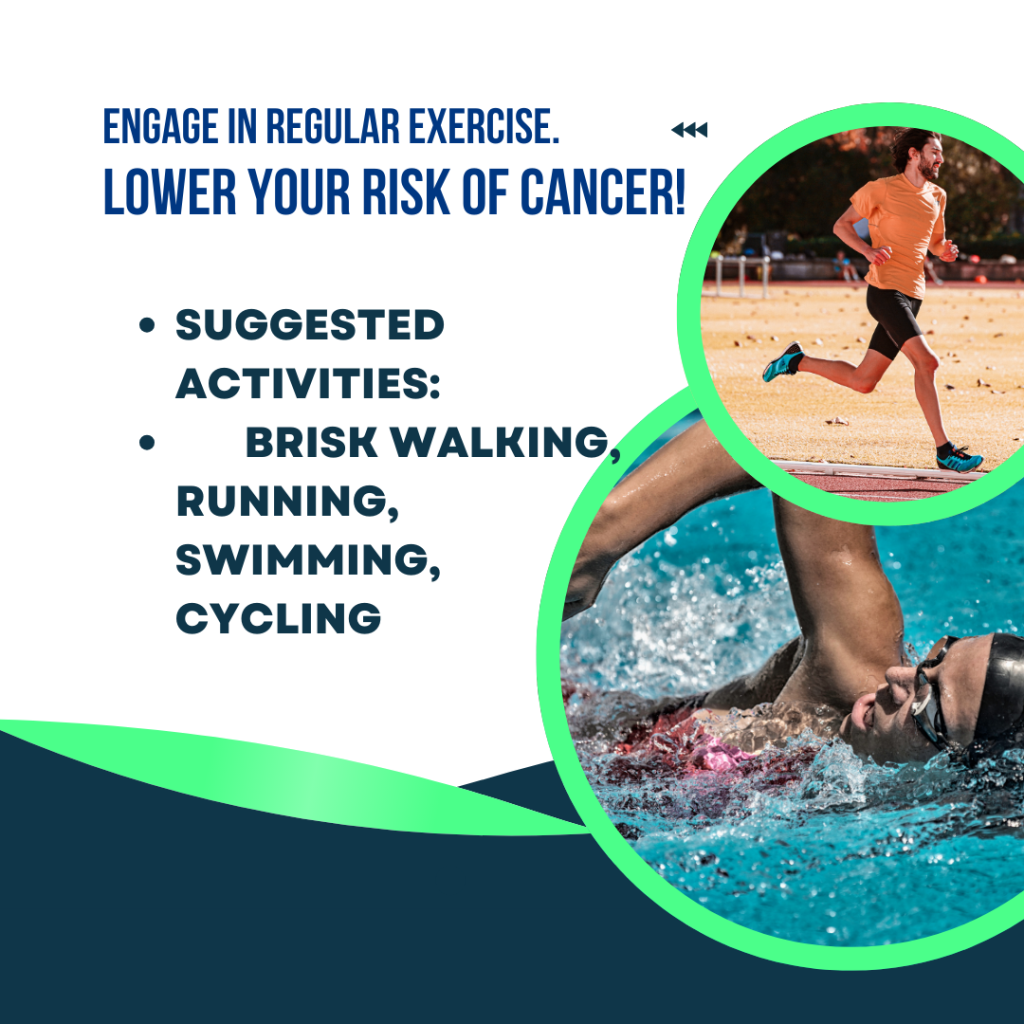Cancer is one of the leading causes of death worldwide. While there’s no foolproof way to prevent cancer, lifestyle changes, especially regular exercise, can significantly reduce the risk.
Why does exercise help reduce cancer risk?
- Weight control: The World Health Organization (WHO) states that being overweight or obese increases the risk of at least 13 types of cancer, including breast, colorectal, and prostate cancer. Exercise helps control weight and reduce these risks.
- Reduces inflammation: Chronic inflammation is a risk factor for cancer. Regular exercise helps reduce inflammation in the body.
- Hormonal balance: Exercise helps regulate hormone levels in the body, particularly insulin and growth-related hormones, which are associated with certain types of cancer.
- Improves immune system: Exercise may enhance the efficiency of the immune system, which plays a crucial role in fighting cancer cells.
- Increases bowel motility: Exercise stimulates bowel movement, reducing the time carcinogens are in contact with the intestinal lining.





Guidelines for exercising to reduce cancer risk:
- Aerobic exercise: WHO recommends that adults aged 18-64 engage in at least 150-300 minutes of moderate-intensity aerobic activity or 75-150 minutes of vigorous-intensity aerobic activity per week. Recommended activities include brisk walking, running, swimming, or cycling.
- Muscle-strengthening activities: Engage in activities that strengthen major muscle groups at least two days a week.
- Reduce sedentary behavior: Try to move frequently throughout the day, reducing long periods of sitting or lying down.
- Increase daily activities: Choose stairs over elevators, walk or cycle instead of driving short distances, or do housework energetically.
- Exercise regularly: Consistency is more important than intensity. Start small and gradually increase intensity and duration.
Studies from the National Cancer Institute (NCI) show that exercise can reduce the risk of several types of cancer:
- Colorectal cancer: Risk reduction of up to 20-25%
- Breast cancer: Risk reduction of about 20-30%
- Endometrial cancer: Risk reduction of about 20-30%
- Kidney cancer: Risk reduction of about 20-30%
Moreover, there’s evidence that exercise may help reduce the risk of liver cancer, lung cancer, and prostate cancer.
It’s never too late to start exercising. Even if you’ve never exercised before, starting today can make a positive change to your health. However, consult a doctor before starting a new exercise program, especially if you have pre-existing conditions or physical limitations.
It’s important to understand that exercise is just one part of a healthy lifestyle. A nutritious diet, adequate rest, stress management, and avoiding risky behaviors like smoking and excessive alcohol consumption are also crucial in reducing cancer risk.
Start today for better health and reduced cancer risk! Exercise not only helps prevent cancer but also improves your quality of life in every aspect!
If you have concerns about cancer, you can consult with a cancer specialist for a free initial 15-minute consultation here: Consultation Link
#Cancer #AntiAging #epigeneticthailand.com #ConsultWithOncologist #AntiAging
Note: Exercise should be supervised by a qualified professional.



